The book from which we will learn today is “50 Positive Habits To Transform Your Life”, written by Michael Chapman. Michael Chapman is passionate about self-improvement. He’s learned from past mistakes and transformed his life into something he’s proud of, and he wants to share his tips with his readers. Dedicated to helping his readers improve themselves, Chapman has also written Self Discipline, which is dedicated to changing your mindset and choosing better goals.
50 Positive Habits to Transform Your Life by Michael Chapman is a quick and easy-to-read checklist of things you can add to your day to improve your life by implementing positive thinking and actions. Chapman covers all areas of life, from fitness goals, mental habits, emotions, lifestyle, personal habits, and developments. If you need convincing on introducing these habits, Chapman’s book has excellent examples of why adding them has made his life better and what life would be like without them.
1. Fitness goals & habits
We need to start from the main point of our body. It is the only point of doing something if your body is ready to respond to your mind. These methods will help to reshape, strengthen and optimize your body.
2. Walking everyday
Chapman recommends getting up and walking first thing in the morning. Any movement will release endorphins into your body, and you’ll feel energized and ready to take on the day. If you can’t walk in the morning, try to fit it in at some point throughout the day. For example, try your lunch break at work. ”Walking every day improves mood; fact.”
3. Staying active
We lead stationary lives, tied to our desks, sit in our cars for lengthy commutes, and then go home to sit on the couch. Chapman emphasizes the importance of keeping active throughout the day. Even when working at your desk, establish regular intervals to get up, walk around the office and do a few stretches. If you’re at home watching TV, consider getting up and moving around during ad breaks. Do a few star jumps or a few flights of stairs.
4. Working out
Walking is excellent, but Chapman recommends getting in some regular strength training. Exercising big muscle groups such as the chest, legs, and arms dramatically benefits your overall health. Start with light weights and build them up as your strength improves.
”It will improve your mood, making your body feel more robust and your mind run much faster.”
5. Jogging on the spot
A tremendous little solution I found was jogging on the spot for the duration of a TV program. Do this every single day.
6. Bedroom activity
Spend more time with your loved one. Regularly making love is great for beginning a stress relief element and can even relieve your body of illness as it helps boost the immune system long-term.
7. Finding a habit
Chapman believes that finding a hobby can improve your life. Next, pick something you can regularly work on and see yourself improving. Whether this could be fitness-related or not, ensure that there is a metric, you can measure your success on. Seeing yourself make progress will do wonders for your confidence and encourage you to tackle new challenges.
8. Parking away
How often do you find yourself searching for the closest car parking? Chapman recommends parking as far away as possible from any shops or locations you are heading to. And when you head to work, try to park a few blocks away. Adding some incidental exercise and a bit of a walk into your day will be beneficial for your health and mood.
9. Stretching properly
Implementing a new fitness regime is good, but Chapman wants everyone to remember the importance of stretching. Many of us skip it because it’s slow, tedious, and unnecessary. However, it’s been proven that extension is essential and critical in keeping your body agile and healing from injuries or pain.
”Get into a better fitness frame by stretching for 5 minutes post-shower or waking.”
10. Teaming up
If you struggle to commit to an exercise regime, consider joining a team or finding a buddy—someone else you can save to and exercise together. The accountability will help you get up and out of bed each day, ready to move your body. In addition, you’ll find that your fitness improves quickly when working with friends.
11. Make exercise fun
Exercise shouldn’t be a chore; if it is, you’ll never stick to it long-term. Figure out what aspects of fitness you love and do that. If going to the gym and lifting weights is boring, don’t do it, or try making a music playlist that inspires you. If you prefer being outdoors and playing tennis in the sun, make that part of your routine. Whatever it is, as long as you’re moving, it’s good for you!
”By doing what you find fun, you’ll be much happier and easier to commit.”
12. Looking at the negativity
Chapman believes that changing the way you view the world can have the most significant impact on your life. Do you currently negatively perceive things, always looking for the downside? It’s time to shift and look for positivity and joy in life mentally.
To change your cognitive behaviour, Chapman recommends acknowledging when you have an opposing viewpoint and instantly trying to shift it. Ask yourself what is good about the situation instead of focusing on the negatives.
13. Thinking about success
Chapman recommends that you think about success and visualize what success looks like. Thinking about this and imagining it will help motivate you to do everything possible to get there. A visualization is a powerful tool.
”Simply being able to visualize what might be coming in the future is a powerful tool.”
14. Contemplation relation
before you take action, contemplate the possible outcomes. Chapman explains that this will usually lead you to see the good and be more positive overall. If you tend to take action before any consideration, you’re more likely to react to adverse events, and the outcome probably won’t benefit you.
15. Noting your positivity
we’ve already explained the importance of remaining positive and having a positive outlook on the world. Still, Chapman believes it’s just as important to recognize the moments you are being positive. Recognizing this will help increase your positivity and encourage you to remain positive more often.
16. Detailing the positives
detailing the positives rather than looking at the problem, though, why not start looking for solutions?
17. Challenging assumptions
assumptions can be dangerous; we’ve all been burned at least once in our life by assuming something that turned out to be wrong. Chapman emphasizes the importance of challenging your assumptions; this will enable you to learn and adapt constantly. And if you’re wrong, embrace it because you learned something new!
18. Accepting your successes
you’ll become far more comfortable and aware of your successes and failures in life. This will ensure you can continue to develop without always seeing yourself as failing.
You’re never going to succeed 100% of the time, and as humans, it’s easy to dwell on our failures. Instead, Chapman recommends embracing successes, celebrating them, and remembering them when you feel you are failing. This will help you stay positive and help you keep improving.
19. Reviewing your failures
just as accepting and acknowledging success is essential, it’s also crucial to recognize and review your losses. Take time to assess what went wrong and why. If you can figure out where the issues arose, you’ll be better prepared for next time and hopefully able to avoid future problems.
20. Mind games
exercising your brain is essential; it helps you keep alert, helps you improve, and keeps you young. Chapman recommends regularly playing mind games with yourself. It can be as simple as memorizing a short poem. But simple tasks like this will continue challenging your brain and encourage development.
21. Force of attraction
remember to dream. Chapman encourages everyone to spend time wishing and dreaming. Consider what you really want in life and desire it often. Thinking about something enough will help it happen.
22. Meditate for success
Chapman highly recommends practising some form of meditation. The best thing about meditation is that there are no rules. You can figure out the best way to do it and keep going. He recommends doing it every single day. Meditation can be done for short periods, like 4-10 minutes, or longer stints of 30+ minutes.
You can do it completely unguided, or if you’re just getting started and want some help, you can consider guided meditation. There are plenty of apps out there that can guide you through different meditations.
23. Diaphragmatic breathing
Breathing is something that we all do automatically. We often give it no thought at all. Chapman believes there is a lot to gain from learning to take slower, deeper breaths occasionally. Investigate diaphragmatic breathing and see if you can implement it into your life.
24. Walking meditation
This change is necessary for me to be quite erratic and likely to walk into errors that could have been avoided. Also, with the help of this form of meditation, it’s easier to get mental clarity even when busy.
25. Identifying emotions
It’s so easy to get overwhelmed with our emotions; Chapman emphasizes the importance of recognizing and identifying our feelings in a moment to improve our understanding of a situation and ourselves.
When feeling a powerful emotion, find 4 or 5 words that describe how you think. Then, figure out what prompted you to feel like that and why. You’ll learn a lot about yourself by doing this regularly.
26. Putting perspective together
Often things can seem like an absolute disaster or something that just came up in the present as an urgent emergency. Chapman recommends putting things into perspective and understanding your place in the wider world and the broader view of your life. Is it the end of the world? Or is it just something you would have preferred not to have happened? By doing this, you’ll learn and be able to handle situations better.
27. Five minutes breaks
Sitting in front of a computer screen or with your nose in the same book for hours is unsuitable. You start to lose concentration and focus, and your productivity will rapidly decrease. Instead, take 5-minute intervals throughout the day, step away from what you’re doing and take some time for yourself. When you return to the task, you’ll feel refreshed and ready to continue.
28. You are what you eat.
We’ve all heard the phrase ‘you are what you eat. It’s incredible just how true this is. Chapman emphasizes the importance of eating well and food’s relationship with how you feel. Eat plenty of fruit, vegetables, lean protein, and complex carbohydrates. If you fuel your body correctly, you’ll feel stronger and happier, and your performance at work will improve.
”What we eat determines how we feel, acknowledge anything that makes you feel bad and eliminate it!”
29. Handle negative emotions
Inevitably, we are all going to feel sad now and again. It’s impossible to be happy all of the time. Chapman explains that whenever you are feeling down, it’s important to remember that these feelings are not permanent. They are fleeting, and they will pass. Don’t ignore them; ride them out, and you’ll see the light on the other side soon enough.
30.Sitting outside
Chapman emphasizes the importance of getting outside in the fresh air as regularly as possible. He encourages every to get out, smell the roses and listen to the birds. Try to do this without any distractions, such as a mobile phone. Instead, immerse yourself in your surroundings and escape reality for a few minutes.
31. Mental redirection
Do you find yourself constantly going to the negative first? Then, you’ll continue to feel upset and angry, never considering why negativity wins. But, if you change, you can start challenging negativity and finding solutions to what causes this thinking.
32. What are your values?
Understand the values that you hold; these values should shape the decisions you make and actions that you take.
“If you start to make decisions based on if it fits our values, you’ll become stronger mentally and more committed to achieving your goals and dreams.”
33. What are your passions?
Figuring out what your passion is can be life-changing. If you understand what makes you tick, what motivates you, and what you want to keep doing for the rest of your life, you’ll understand yourself better. It will also make planning and decision-making more accessible and more straightforward.
34. Creating a vision
We spoke about the importance of visualization earlier; Chapman believes having your vision and a clear dream is essential. It can be about who you want to be or where you want to be. If you’re looking for inspiration for your vision, you can look to other people you admire and use their success as your vision.
”The most influential people have a dream, a vision.”
Chapman recommends looking at yourself for inspiration. If you’re feeling stuck or in a rut, remember when you were genuinely successful and achieved something extraordinary. Remember what it felt like, and use that to drive you forward. Then, make it your mission to get back to the same level of success (if not better).
35. Challenging beliefs
Just as we challenge our assumptions, we should question our beliefs. Chapman recommends you play out an argument you expect to have with someone with differing opinions. Do they have a point? Do you still stand by your beliefs? Be constantly questioning yourself to allow yourself room to grow.
36. Letting go
We all live a life of consumption; we are compelled to buy and own more. We often wrap our own identities up in the things that we possess. And we are often afraid to lose these things. But the reality is, they are just things. Chapman recommends removing anything that doesn’t bring you joy, assessing whether or not you need something, and eliminating it if you don’t.
37. Selfish or selfless?
A popular choice for helping ensure that you make intelligent decisions shortly is whether you should be selfless or selfish. You cannot do too much to help yourself if you want to be selfless and always act selfish. Finding the way you feel suits you best is hard work, but it will make you feel more secure with who you are and more optimistic.
38. Stopping yourself short
How often do you find that you sell yourself short? I always found that I limited my talents due to a negative outlook on the world. So, to practice, I started oppositely making decisions. In the past, when I would think of others, I would put myself first – and vice versa. Now I’m much more comfortable making choices that revolve around what I want to do instead of always trying to pander to others.
39. Defeating excuses
A significant problem in my mindset was always using excuses to avoid knowing I failed. To change this, I concentrated on my failures. Now, I’m far more comfortable and have found I’m more optimistic than I have been, as I can see my faults.
40. Creating, not reacting
The most powerful way I have found to handle negativity is to create. I now use that energy for good.
This makes it very easy to give yourself time to consider a response, using creativity to drive your emotions. So now I take the time to immerse myself in what has gone wrong, creating more harmony.
41. Simplifying your day
Moving on from the previous point about eliminating your possessions, you can apply this mindset to your life and your day. Do your best to simplify your day in every way possible. Eliminate all mess that is a distraction and counter-productive. Reduce the time you spend doing unnecessary tasks. Make working and living as productively as possible your ultimate goal.
42. Establishing your goals
It’s essential to establish some goals. Chapman recommends you focus on the most complex and challenging goals first. You may have different plans in different areas of your life, and your instinct may be to tackle the smaller, more manageable goals. But start with the nitty-gritty ones and start making progress. You’ll be grateful later on that you did.
43. Beginning a project
Having a plan and a goal is one of the best ways to stay motivated. Chapman recommends you continually make plans and set ambitions. Please ensure they are something you can work on regularly and see improvement. Then, wake up every day ready to work on your plans, and don’t stop until they are completed.
44. Determine productivity
Are you productive at work? Chapman encourages everyone to consider how they act at work and whether they are complaining or irritated. Look at the source of the irritation; why does it make you feel like that? Is there something preventing you from getting on with your work? How can you get around this?
45. Batching for success
Something a lot of productivity specialists recommend is batching similar tasks together. You’ll find that batching tasks like email will help you get through it quicker and avoid too many distractions. You’ll fall into a rhythm and be able to get through them quickly.
46. Creating your priorities
Chapman highly recommends identifying your priorities for your goals. Understanding your preferences better will clarify what you need to do every day. Chapman recommends writing down three critical importance at the beginning of every week and ensuring that these priorities are addressed daily.
47. Waking earlier
Another common trend from productive experts is that waking up early is one of the most effective things you can do. By waking up just 1 hour early, you allow yourself to do something you otherwise wouldn’t. Ensure you get to bed a bit earlier, and try waking up earlier every day. You’ll be amazed at what you can achieve.
48. Working in bulk
Instead of working in small groups and doing chunks, working in longer bulks of 3-4 hours at a time was more accessible, with fewer breaks in between. I make this part of my day-to-day planning for the rest of my life. Now, I work in larger chunks with longer, more relaxing breaks. This change has helped me be more assertive and to work more productively. Regardless of the difficulty, I’m far less likely to approach my working day negatively.
49. Learn to say no
it’s straightforward to over-commit and find yourself overwhelmed with tasks and events you didn’t want to do in the first place. Chapman recommends learning how to feel comfortable declining opportunities and saying no. Remember, you don’t need a reason or excuse; if it’s not going to bring you any joy, feel free to decline. Getting some control back over your life will make you feel happier and more accessible.
50. Follow all habits
This is the last habit in this book, and it suggests that you should repeatedly read in habits so that you will remind yourself again and again.
Conclusion
This book focuses on not only work-related habits but also personal habits. Therefore it is ideal for anyone interested in making a change in their life, whether professional or personal. During examines exactly what a pattern is before delving into how we can mould, shape, and change these habits.
Action steps
Identify up to 5 habits you want to start doing right away.
Implement these into your daily life and commit to them for 30 days.
After the 30 days, assess how you feel. Better?
If the first 5 were a success, consider implementing a few more at once.
From the above summary, I hope you must have picked up stones for your grand success.
50 Positive Habits to Transform Your Life Book Review
“50 Positive Habits to Transform Your Life” by Michael Chapman is a practical and inspiring guide that offers actionable advice on cultivating positive habits for a more fulfilling and successful life. The book covers many topics, including health, relationships, productivity, and personal growth, providing readers with a comprehensive blueprint for self-improvement.
As a reader, I found the book engaging and motivating. Chapman’s writing style is clear and concise, making it easy to absorb the valuable information he shares. Each habit is presented with a brief explanation of its benefits and practical tips for implementation, allowing readers to apply the lessons to their own lives easily.
One aspect of the book that particularly resonated with me was the importance of consistency and discipline in developing positive habits. Chapman’s message that small, daily actions can lead to significant improvements over time has inspired me to be more intentional with my daily routine and choices.
In conclusion, “50 Positive Habits to Transform Your Life” is a must-read for anyone looking to make meaningful changes in their life and embrace a more positive and productive mindset. Michael Chapman’s insights and practical guidance will undoubtedly leave you feeling empowered and inspired to take control of your habits and create the life you desire.
Contents

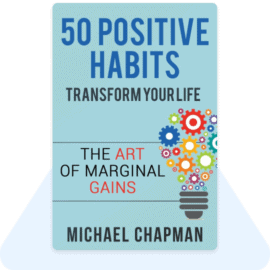
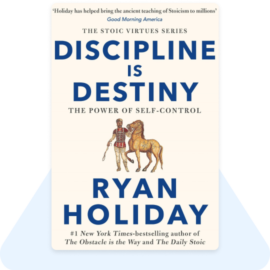
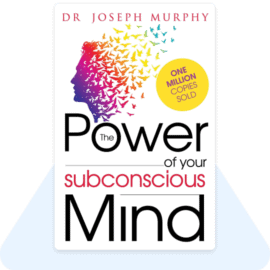
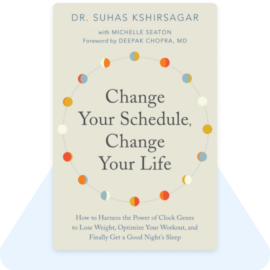

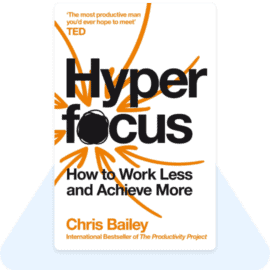



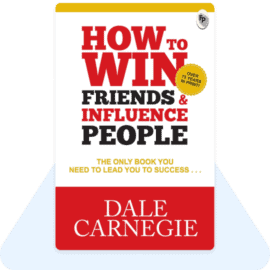

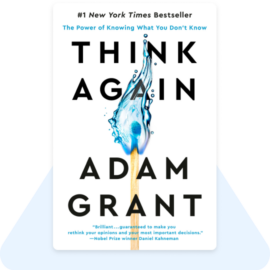
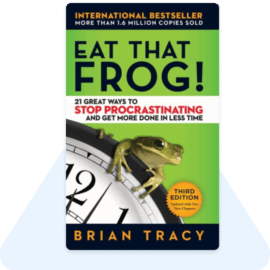
Thankyou
Thanks 6th day completed
Overwhelmed…
Day 6, 50 positive habits, by Michael Chapman.
A successful life is a sim of positive habits. Positive thinking and positive actions can do wonders in our life.
Thank you Amit sir and RBC.
Day 6, 50 positive habits, by Michael Chapman.
A successful life is a sum of positive habits. Positive thinking and positive actions can do wonders in our life. Keep learninh, keep grinding.
Thank you Amit sir and RBC.